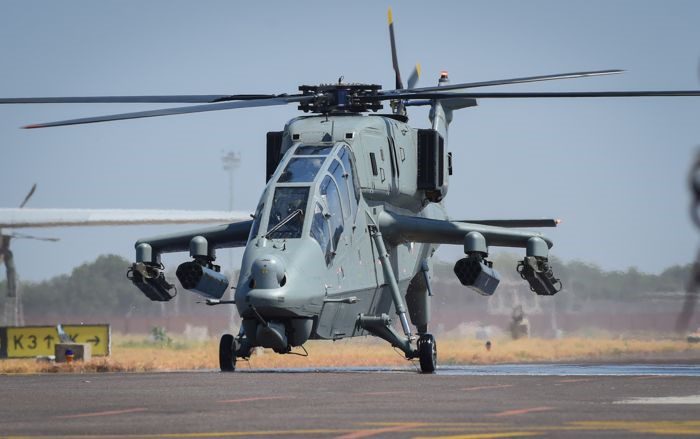In a significant move to expand its global defence footprint, India is taking proactive steps to solidify its recent inroads in the Nigerian defence industry. With an ambition to compete with global powerhouses like Russia and China, India has been diligently working to increase its presence in the arms trade, particularly focusing on selling domestically produced weapons to African militaries.
Recently, a 33-member delegation led by Anurag Bajpai, Additional Secretary in the Ministry of Defence, embarked on a diplomatic mission to Abuja. This visit, which commenced on March 7, is a response to Nigeria’s interest in fostering collaborative ties with the Indian defence industry, marking a new chapter in bilateral defence cooperation.
The delegation comprises leading defence Public Sector Undertakings (PSUs) and private companies, including leading defence Public Sector Undertakings (PSUs) and private companies including Hindustan Aeronautics Ltd. (HAL), Bharat Electronics Ltd, Bharat Earth Movers Limited, Mazagaon Dock Shipbuilders Limited, Goa Shipyards, Advanced Weapons and Equipment India Limited, L&T, Bharat Forge, and MKU Limited forming part of the contingent., highlighting India’s commitment to exploring new partnership avenues and enhancing defence collaboration with Nigeria.
The focus is on exploring potential business opportunities in critical areas such as small arms, ammunition, and armoured vehicles. Nigeria’s burgeoning defence requirements present a unique opportunity for Indian defence companies to showcase their expertise and forge strategic partnerships to meet Nigeria’s evolving security needs. HAL is offering its indigenous LA-Tejas Mk1A fighter jets and LCH Prachand Attack helicopters to Nigeria.
It was recently revealed that Nigeria is one of the potential buyers of the Tejas fighter jet, a light combat aircraft developed and manufactured by India’s Hindustan Aeronautics Ltd. (HAL). The Tejas is a multi-role fighter jet that boasts agility, advanced technology, and robust performance. However, the sale of the Tejas to Nigeria is far from certain, as the aircraft is still unproven in combat and faces competition from other suppliers.
India is hoping to capitalize on its growing presence in Africa to not only sell more of its domestically produced hardware but also to gain access to new markets and further strengthen its global presence. India has already made strong inroads into the African arms market and is confident that, with the right strategies in place, it can become a major player in the sector and compete with Russia and China for arms deals.
On its part, last September, Nigerian President Bola Ahmed Tinubu approved the finalization of a new $1 billion deal to boost the country’s defence industry. The deal, which was signed with the Managing Arm of the Military-Industrial Complex of the Indian government, will see the Defence Industries Corporation of Nigeria (DICON) become 40% self-sufficient in local manufacturing and production of defence equipment by 2027.
The deal is a major boost for DICON, which has been struggling to meet the needs of the Nigerian military. The corporation has been plagued by chronic underfunding and mismanagement, and it has been unable to produce many of the weapons and other equipment that the military needs.
India’s strategic foray into the African defence market reflects its growing aspirations to emerge as a key player in the global defence arena. With the right strategies, India is confident it can become a major player in the sector and compete effectively for arms deals in Africa.
